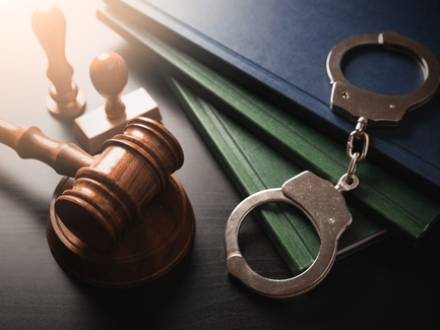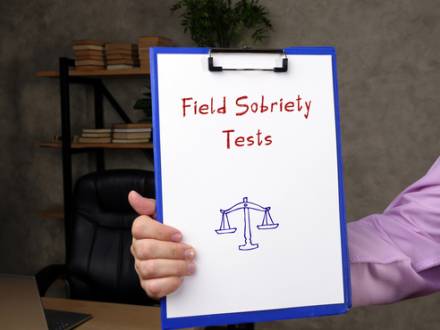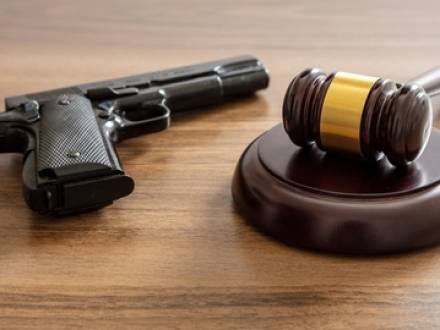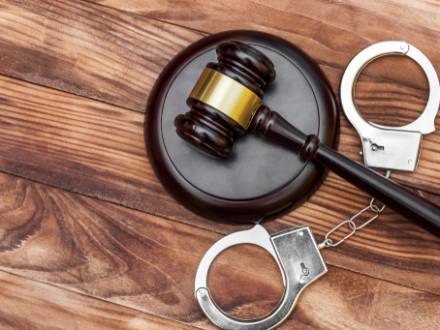Recent Blog Posts
How Can Prior Convictions Impact My Texas Criminal Case?
 If you are facing criminal charges in Texas, any prior convictions can have a significant impact on your current case. It is crucial to understand how these previous convictions might influence sentencing, plea negotiations, and overall defense strategy. An experienced Texas criminal defense lawyer can review your case, offer invaluable guidance, and help you navigate the legal system.
If you are facing criminal charges in Texas, any prior convictions can have a significant impact on your current case. It is crucial to understand how these previous convictions might influence sentencing, plea negotiations, and overall defense strategy. An experienced Texas criminal defense lawyer can review your case, offer invaluable guidance, and help you navigate the legal system.
What Role Do Prior Convictions Play?
Texas law takes prior convictions seriously, and how much they can influence your current case depends on the nature and timing of those past offenses.
Enhanced Sentencing
According to the Texas Penal Code, a felony charge for someone with prior felony convictions might end up facing an elevated charge. For example, a second-degree felony, which typically carries a sentence of two to 20 years in prison, could be upgraded to a first-degree felony, which has a maximum sentence of life imprisonment.
Is There Any Way Out of a Field Sobriety Test in Texas?
 When someone is pulled over in Texas and the police suspect that he is driving under the influence of drugs or alcohol, they might ask the driver to take a field sobriety test. These tests are used to check for signs of intoxication, but you might be surprised to read that you could have valid reasons to refuse to take them.
When someone is pulled over in Texas and the police suspect that he is driving under the influence of drugs or alcohol, they might ask the driver to take a field sobriety test. These tests are used to check for signs of intoxication, but you might be surprised to read that you could have valid reasons to refuse to take them.
There are some important things to consider before deciding to refuse, for example, the grounds you would use for your refusal and the potential consequences you can face. A qualified Texas criminal defense lawyer can help you if you are facing legal challenges and unsure what to do.
How Do Field Sobriety Tests Work?
A field sobriety test (FST) is a series of tasks that test physical and mental capabilities. Police use these to determine if someone is impaired. There is no one set test that must be given, and police typically include any or all of the following:
Are Ghost Guns Legal in Texas?
 Ghost guns have been coming up in the news lately, especially following a high-profile case that involved one a few months ago. While we all know that as Americans, we have the right to bear arms, as stated in the Second Amendment of the U.S. Constitution, ghost guns are a hot topic for legal debate because of their unique nature. To learn more about whether you could face weapons charges for possessing a ghost gun, speak with a qualified Texas criminal defense lawyer.
Ghost guns have been coming up in the news lately, especially following a high-profile case that involved one a few months ago. While we all know that as Americans, we have the right to bear arms, as stated in the Second Amendment of the U.S. Constitution, ghost guns are a hot topic for legal debate because of their unique nature. To learn more about whether you could face weapons charges for possessing a ghost gun, speak with a qualified Texas criminal defense lawyer.
How Are Ghost Guns Categorized?
According to Texas law, anything that has been designed, made, or adapted so that energy from ignition or an explosion can be used to send a projectile through a barrel is considered a firearm. Federal law goes a bit further by adding other parts, including a weapon’s frame, receiver, muffler, or silencer under the definition.
What Happens When You Are Charged With Cyberbullying in Texas?
 As more aspects of daily life continue to move into the digital space, states like Texas have begun adopting legal measures to address various ways it has impacted people. One prominent example is cyberbullying. The term itself can cover so many different actions that it can be hard to understand what is and is not included by its legal definition, however, if your actions fall under the cyberbullying legal umbrella, you could face criminal charges. If you or your child is charged with cyberbullying, speak with a skilled Texas criminal defense lawyer to understand the implications and your options.
As more aspects of daily life continue to move into the digital space, states like Texas have begun adopting legal measures to address various ways it has impacted people. One prominent example is cyberbullying. The term itself can cover so many different actions that it can be hard to understand what is and is not included by its legal definition, however, if your actions fall under the cyberbullying legal umbrella, you could face criminal charges. If you or your child is charged with cyberbullying, speak with a skilled Texas criminal defense lawyer to understand the implications and your options.
What Is Considered Cyberbullying?
The term cyberbullying refers to an imbalance of power when someone does something to someone else using technology – texting, emailing, or on social media, for example – to:
What Does Entrapment Mean and How Can I Use It in My Defense?
 Police are meant to protect citizens, keep their communities safe, and stop crimes from happening. However, there are some scenarios when a defendant can claim that he only committed a crime because the police manipulated him into doing so. If you believe you were tricked or pushed by police into doing something illegal that you otherwise would not have done, speak with an experienced Texas criminal defense lawyer about whether you have a valid entrapment claim.
Police are meant to protect citizens, keep their communities safe, and stop crimes from happening. However, there are some scenarios when a defendant can claim that he only committed a crime because the police manipulated him into doing so. If you believe you were tricked or pushed by police into doing something illegal that you otherwise would not have done, speak with an experienced Texas criminal defense lawyer about whether you have a valid entrapment claim.
What is Entrapment?
Entrapment is the term used for a defense strategy that involves the defendant claiming he was tricked or forced into committing a crime by government agents or police officers. A key component is the argument that he would not have committed the crime normally, but an undercover agent or police officer encouraged or manipulated him into doing it.
When Are Juveniles Tried as Adults in Texas?
 In Texas, most crimes committed by juveniles are handled in the juvenile justice system. This system focuses on rehabilitation, offering young people a chance to learn from their mistakes and make necessary changes so they can move forward.
In Texas, most crimes committed by juveniles are handled in the juvenile justice system. This system focuses on rehabilitation, offering young people a chance to learn from their mistakes and make necessary changes so they can move forward.
However, there are some cases when juveniles are tried as adults. This can lead to harsher penalties and a lifelong criminal record. If your juvenile child is facing criminal charges, a knowledgeable Texas criminal defense lawyer can review his case and help protect his rights and future.
When Does Texas Try a Juvenile as an Adult?
Anyone under the age of 17 is considered a juvenile according to Texas law. Juveniles charged with crimes are typically processed in the juvenile justice system. However, some crimes are considered serious enough for defendants to be tried in adult court regardless of their age.
What Is Double Jeopardy and Can It Affect My Case?
 The phrase "double jeopardy" refers to a legal right in the Fifth Amendment of the U.S. Constitution that prevents people from being tried for the same criminal offense twice. It applies in all states, including Texas. This rule is designed to ensure that the legal system is fair by protecting people from being prosecuted repeatedly for the same crime. For more information about how this can apply to your criminal case, speak with a qualified San Antonio, TX criminal defense lawyer.
The phrase "double jeopardy" refers to a legal right in the Fifth Amendment of the U.S. Constitution that prevents people from being tried for the same criminal offense twice. It applies in all states, including Texas. This rule is designed to ensure that the legal system is fair by protecting people from being prosecuted repeatedly for the same crime. For more information about how this can apply to your criminal case, speak with a qualified San Antonio, TX criminal defense lawyer.
What Does Double Jeopardy Prevent?
Double jeopardy is protected in Section 14 of Texas’ Bill of Rights, as well as the U.S. Constitution. There are three main things that double jeopardy prevents:
How Can DNA Evidence Impact My Criminal Case?
 DNA evidence is often considered irrefutable proof of allegations in criminal cases. It has been instrumental in solving many crimes and securing convictions, as well as exonerating people who were wrongfully convicted. However, DNA evidence is not always the most accurate proof that something happened.
DNA evidence is often considered irrefutable proof of allegations in criminal cases. It has been instrumental in solving many crimes and securing convictions, as well as exonerating people who were wrongfully convicted. However, DNA evidence is not always the most accurate proof that something happened.
There are several key factors to consider, including how DNA is used in criminal cases, challenges defense attorneys may face, and common misconceptions about its reliability. To learn more about how DNA evidence might affect you, speak with an experienced San Antonio, TX criminal defense lawyer.
How is DNA Used in Criminal Defense?
DNA evidence can play a powerful role in Texas criminal defense cases. It can be used in various ways to help convict or defend someone.
-
Exoneration: Since the 1990s, DNA testing has been used to free people who were wrongly imprisoned for crimes they did not commit. Some district attorney’s offices throughout Texas have something called a conviction integrity unit that has played a significant role in reviewing cases where DNA evidence might prove a convict’s innocence.
What to Know About License Plate Fraud in Texas
 Anytime someone produces a fake government-issued document, they can face charges of fraud. The specific charges differ depending on what exactly was falsified, but they all carry serious implications. Recent legislative efforts to clamp down on temporary driver's license plate fraud in Texas have underscored how prevalent this trend can be, with some experts estimating that the forged temporary license plate enterprise is worth about $200 million. If you are concerned about being implicated in a temporary license plate fraud scheme, contact an experienced San Antonio, TX criminal defense lawyer to review your options.
Anytime someone produces a fake government-issued document, they can face charges of fraud. The specific charges differ depending on what exactly was falsified, but they all carry serious implications. Recent legislative efforts to clamp down on temporary driver's license plate fraud in Texas have underscored how prevalent this trend can be, with some experts estimating that the forged temporary license plate enterprise is worth about $200 million. If you are concerned about being implicated in a temporary license plate fraud scheme, contact an experienced San Antonio, TX criminal defense lawyer to review your options.
How is License Plate Fraud Charged?
Fraud covers a broad spectrum of illegal actions, and various penalties depend on a case's details. Falsifying certain documents, like checks that fraudulently authorize a money transfer, can be charged as a state jail felony, punishable by between 180 days and two years in jail and a fine of up to $10,000. Other types of forgery can be charged as misdemeanors, with specific penalties determined by the value of what was forged.
How Is BUI Charged in Texas?
 With so many lakes all around, boating is a popular activity in San Antonio. Whether you board a boat while on vacation, during a holiday weekend, or after a long day at work, sailing is an excellent choice for unwinding. However, some people can take that relaxation a bit too far by drinking excessively.
With so many lakes all around, boating is a popular activity in San Antonio. Whether you board a boat while on vacation, during a holiday weekend, or after a long day at work, sailing is an excellent choice for unwinding. However, some people can take that relaxation a bit too far by drinking excessively.
Boating accidents associated with alcohol can cause damage and injury and Texas treats boating under the influence (BUI) very seriously. Charges can bring heavy penalties, including fines, prison sentences, and more. If you are accused of BUI, speak with a skilled Texas criminal defense attorney for guidance.
How is Sobriety Tested on Water?
It is against the law to sail a boat if you are under the influence of alcohol or drugs. Just like with driving a car, the legal limit for blood alcohol content (BAC) is 0.08%. If you demonstrate an impaired ability to sail the boat, you can be charged for BUI even with a lower BAC.





